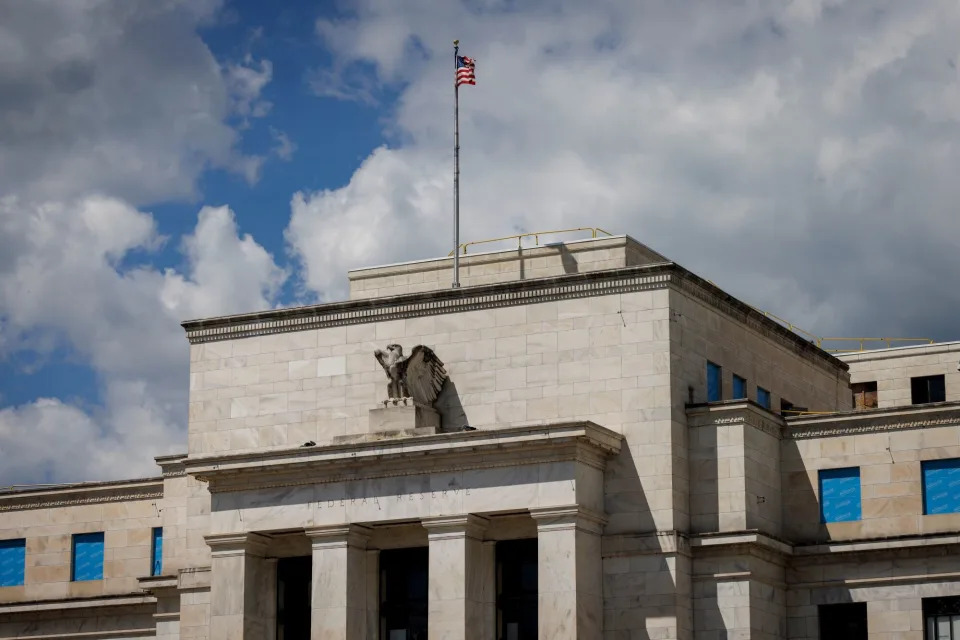Bitcoin ( BTC-USD ) is having its worst week since the collapse of Sam Bankman Fried’s FTX cryptocurrency exchange in November 2022.
The world’s largest cryptocurrency fell 20% over the last week, hitting its lowest levels Sunday and early Monday morning amid a wider correction across financial markets.
Bitcoin's price briefly tumbled below $50,000 to its lowest price since February. It has lost more than $13,000 in value over the last seven days.
Ether ( ETH-USD ), the second-largest cryptocurrency, absorbed even heavier losses. It fell 27% over the last seven days, briefly seeing its biggest single-day drop since late 2021.
The crypto sell-off comes after a series of events that gave investors new hope that a bull market in digital assets could just be getting started and that the industry was past a severe 2022 meltdown that took down some of the biggest players, including FTX.
In fact, just two weeks ago bitcoin was within striking distance of an all-time high of $74,000 set in March as former President Donald Trump prepared to speak at a bitcoin conference in Nashville.
The stamp of approval from the Republican presidential nominee had many in the industry hyped about a friendlier regulatory approach from Washington, D.C., in 2025 and beyond.
Investors were also excited about Securities and Exchange Commission approvals for big money managers to issue new exchange-traded funds that hold ether — one of the latest example of how Wall Street is embracing cryptocurrencies.
Those ETFs could make ether a potential staple in 401(k)s, IRAs, and pension plans and grant the digital asset more mainstream acceptance.

Many of the same money managers that received SEC approval already had ETFs that invest directly in bitcoin.
But these new products could drive prices down in the near term, according to one industry watcher.
Because ETFs don't trade on weekends like the digital assets they hold, these products could lead to a larger "pile-up of sell orders" that could "destabilize the market further," according to Noelle Acheson, writer of the Crypto Is Macro newsletter.
Last week digital asset ETFs and other investment products saw their first weekly outflows in a month, according to crypto asset manager CoinShares. Those outflows totaled $528 million, with bitcoin accounting for the lion's share of that pressure.
Other observers urged calm Monday about the market chaos. Since the beginning of the year, bitcoin is still up 27%, while ether is 6% higher.
"We are not surprised by Bitcoin’s snap reaction," Gautam Chhugani, a senior analyst covering digital assets for Bernstein, said in a Monday note. He noted that during the start of the COVID-19 pandemic in March 2020 "we had seen a similar Bitcoin reaction."
But "we don’t see any incremental negatives for crypto here. Bitcoin’s institutional adoption trends — ETF inflows and wirehouse/bank approvals remain on track" and "U.S. politics remains a major short term catalyst for crypto markets."
Leverage across the crypto market exaggerated the recent swoon.
Roughly 307,000 traders saw over $1.23 billion in crypto derivatives bets liquidated in a 24-hour period by mid Monday Morning, according to data provider CoinGlass.
While the number of liquidations eased through the day, over a quarter of the losses were in bitcoin, with the largest single wipeout happening to a $27 million valued bitcoin long position on China-based crypto exchange Huobi.
Crypto-related stocks also fell.
The stock of US-based exchange Coinbase ( COIN ) closed Monday down 7.32%, while MicroStrategy ( MSTR ), the largest corporate holder of bitcoin, fell 9.60%.
Pressure on bitcoin miner stocks Marathon Digital ( MARA ) and Riot Platforms ( RIOT ) eased through the day. They closed down 1.40% and 3%, respectively.
David Hollerith is a senior reporter for Yahoo Finance covering banking, crypto, and other areas in finance.
ethereum and bitcoin prices, crypto ETFs, and market implications for cryptocurrencies





